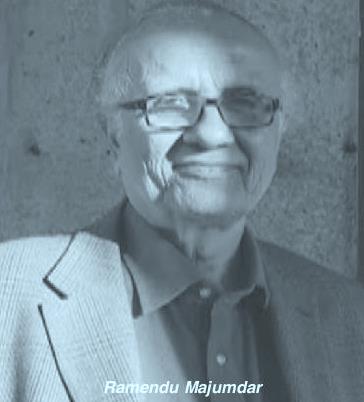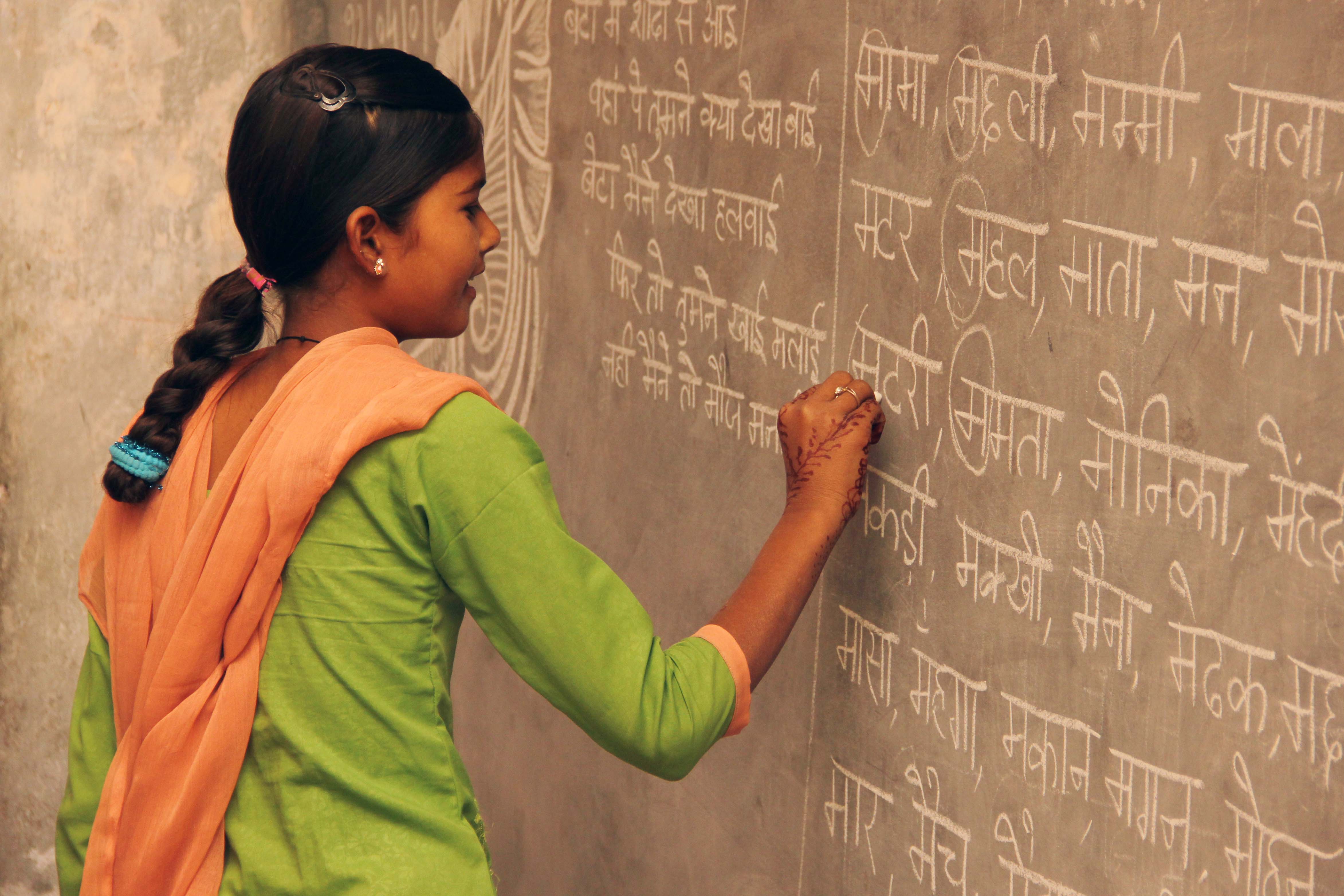A Dialogue with Bangladeshi Thespian Ramendu Majumdar on Theatre and Cultural Politics
Ramendu Majumdar is a Bangladeshi actor, stage director and theatre producer. He own theatre group called ‘Theatre’ is a well-known name and is widely acclaimed for the numerous kinds of plays it has performed. He was the second Asian being elected as the President of International Theatre Institute. Here are glimpses from an interesting conversation that Dr. Dev N. Pathak had with the legend.
Dr. Dev N. Pathak teaches Sociology at South Asian University, New Delhi.
The Swiss poet playwright Tobias Biancone once described Ramendu Majumdar as a man of and for peace. Popularly known as a Prince of Bangladesh, he is also fondly addressed by everybody in Bangladesh as Ramendu da. His contributions towards Bangladeshi theatre are of immeasurable magnitude. Having experienced the Mother Language and Liberation movement, he joined in Group Theatre movemnet in Bangladesh in 1970s. And subsequently he assumed the mantle of institution builder, as Ramendu Majumdar founded the Bangladesh Centre of the International Theatre Institute earning for Bangladeshi theatre worldwide acclaim. His own group, which he simply titled ‘Theatre’ is widely loved for the vast numbers of plays it has produced on diverse themes. He was the second Asian being elected as the president of International Theatre Institute.

He is married to a legendary actress Ferdousi Mazumder who had also been a part of several of his most acclaimed plays. Ramendu Majumdar was awarded the honorary Ekushey Padak in 2009 by the Government of Bangladesh. Recently in Delhi as part of a troup to perform in 19th Bahrat Rang Mahotsaw, Ramendu da spared time for a formal conversation with academics at South Asian University. And as he conversed, an immaculate interface of theatre, culture, politics, and development in Bangladesh surfaced. “Modern theatre in typical sense emerged with the liberation of Bangladesh”, Ramendu da exclaimed at the outset. In the presence of young scholars and teachers from various disciplinary and national backgrounds, he made and interesting observation: There are approximately seventy genres of indigenous theatre in contemporary Bangladesh among which fifty are of religious and twenty of secular sorts. Furthermore, the number reaches to hundred when it accounts the active theatre groups only in the country capital, Dhaka. The modern proscenium in Bangladesh though being reflective of European theatre, has always been seen as the people’s voice to all injustice and oppression. Among different forms of plays showcasing independence movement, social satire, reinterpretation of myth and adapted/ translated plays, yatra is the most popular form of theatre till date. As we turn over the pages of history of theatre movement in the country, we see that it dominated the tales being told in theatre. It was, however, not so easy a passage for Bangaldeshi theatre, as it was discouraged in the name of religion. But, progressive theatre movement of India gave a fillip to the Bangladesh new theatre movement. Theatre with overt cultural politics created a teeming audience in Bangladesh in the decade of 1970s. And it did not stop even during the stifling political epoch as the history of modern Bangladesh witnessed dictatorial regimes coming to power. Many of the theatre artists took to the street, performing straight amidst people and disseminating critical questions. However, there is a moment of crisis for theatre in contemporary Bangladesh.
It is alarming that Bangladesh theatre is losing its audience lately. One principle reason is bad traffic condition around the city of Dhaka Shilpakala Academy, where most of the plays are staged. It takes 3 to 4 hours to comute from one place to other in the city. People lose interest to travel such long for a two hours play.
This indeed reveals the skewed model of development which has made Bangladesh unfavorable for cultural performances. While the developmental oddities are difficult to overcome, it was easier to combat unfavorable circumstances in past. Despite political pressure, reactions from religious factions, and presence of British censorship law till 2008, theatre existed as a popular means of raising cultural criticism. Theatre beheld liberation through this performing art in Bangladesh. With profound experience of theatre and history Ramendu da undertook the responsibility of broadening the horizon of Bangladeshi theatre as he was elected the President of a UNESCO initiative, International Theatre Institute twice. He conceived and executed twelve international seminars, began publishing a theatre journal, and compiled essays in a book World of Theatre. However, he broods: Although theatre in Bangladesh is popular it does not generate money for living. Theatre can be a voice of love, passion and protest but not of living. I earn money from advertising agency and spend in theatre. This becomes more complicated when Ramendu da reflects on the contemporary challenges. The rapid cultural transformation in Bangladesh could be noted at many levels. “There are large number of women wearing hijabs in public. Earlier, women never used to wear hijabs to show off religious affiliation. It indicates the visibility of the extremists and their undeterred claim of public spaces”, observed Ramendu da. This occasions a candid confession: though theatre engaged with society, somehow it failed to understand the dilemma of the commons. In other words, progressive theatre
could not anticipate the rise of fundamental forces, such as Hefazat-e-Islam, an Islamist pressure group of madrasa teachers and students in Bangladesh. The Hefazat pressurised the government recently to abolish over a dozen of literary pieces from school text books because they were scripted by Hindu Writers. One of the writers was the renowned literary genius Humayun Azad too! Such is the extremist condition in Bangladesh today. Furthermore, theatre actors find it difficult to fend for themselves. Many worked in Bangladeshi television serials to earn a living. But entertainment television channels from India in Bengali and Hindi pose serious threat to the serials produced in Bangladesh. In the midst of challenges, such an optimistic institution builder as Ramendu da looks forward to youths taking theatre forward. This also means a more vibrant association between theatre and academia in Bangladesh. The initiative to engage with theatre in the academic domain is quite prominent. Six public universities have Department of Theatre whereas an optional course on ‘Drama’ of 200 marks has been included in the intermediate college syllabus. It has also been proposed in the education department that theatre should be a compulsory course in the intermediate college. Beyond the expansion in academia, three hundred groups across the board are members of Bangladesh Group Theatre Federation (founded way back in 1980). Under the charm of incisive conversation with Ramendu da one fails to get an answer to some of the gruelling questions: How is theatre going to cope with contemporary challenges in Bangladesh? Perhaps the answers could emerge from a new socio-cultural churning.
This article is published in The New Leam, MARCH 2017 Issue( Vol .3 No.22 – 23) and available in print version. To buy contact us or write at thenewleam@gmail.com
The New Leam has no external source of funding. For retaining its uniqueness, its high quality, its distinctive philosophy we wish to reduce the degree of dependence on corporate funding. We believe that if individuals like you come forward and SUPPORT THIS ENDEAVOR can make the magazine self-reliant in a very innovative way.









